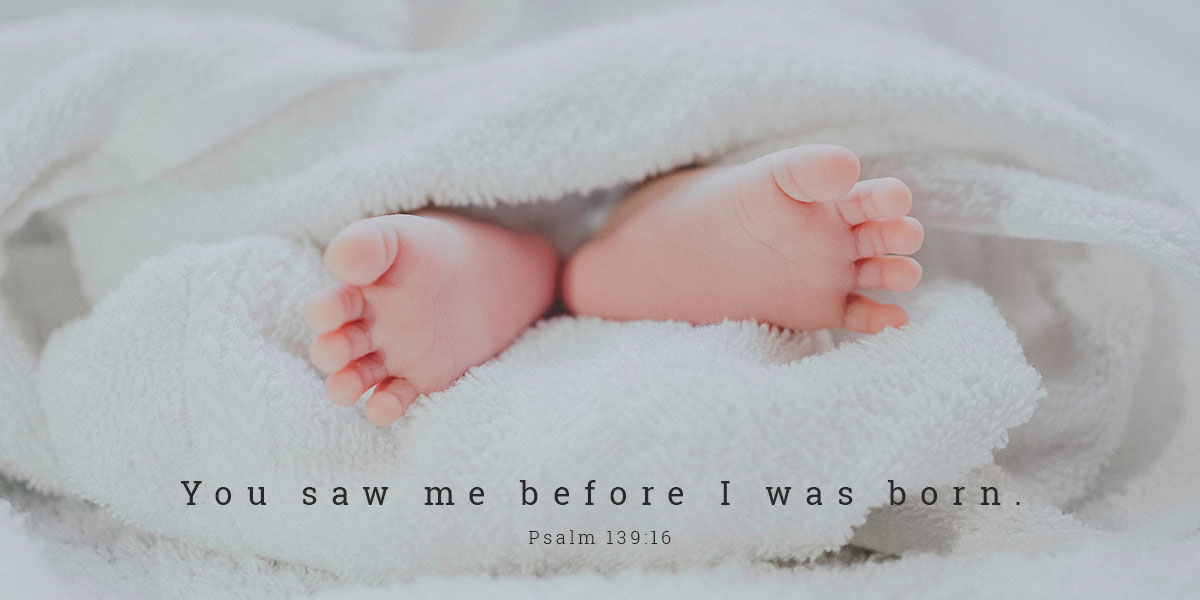
Human Life is Precious
By Pastor Bill
(my reflections after attending LIFE CHAIN, a sidewalk, pro-life, prayer vigil
hosted annually across Canada by Campaign Life Coalition)
The Alarm
Of all the pressing social issues of our day, abortion poses the most clear and present danger to the most people on a daily basis. Across the world, more than 42 million abortions occur every year. That’s 115,000 abortions every single day. Here in Canada, since its legislation in 1969, abortion has killed over 4 million preborn babies. Conservatively speaking, at least 100,000 surgical abortions are committed annually in our hospitals and clinics right underneath our noses. I can drive 17 minutes from my doorstep to the nearest abortion clinic.
Having cuddled, embraced, and cared for my children and now my grandchildren, I find it hard to dwell on these brute facts. They almost paralyze me. How could I be so shamefully silent and appallingly passive?
The Crux
Invariably, every argument in the abortion controversy wends its way back to this question: what or who, is in the womb? And underneath that question is another: ultimately, who gets to decide the unborn’s status? Lawyers? Activists? Lobbyists? Physicians? Clinicians? Politicians? From the beginning the Christian church has always answered clearly. Only God, the grand Creator and life-giver, has the right to settle the issue of when life begins. And this biblical conviction cleared the throat of the early church to speak with a united pro-life voice in contrariety to the ancient Greco-Roman world where abortion was by no means uncommon.
The Bible and Science
The Bible speaks implicitly about the value and dignity of unborn children. There are many texts that speak of unborn children as persons (Job 31:15-18; Psalm 22:9; 51:5; 139:13-16; Jeremiah 1:5; Hosea 12:3; Genesis 25:23-26; 38:27-30). And significantly, there are no texts that speak of them as anything other than persons. Also, under the old covenant arrangement between God and His people, the life of an unborn baby was protected by the same punishment for injury or death as that of his or her mother (Exodus 21:23-25). That’s why the sixth commandment, “You shall not murder,” implies that you shall not kill unborn babies.
Additionally, the science of genetics confirms the biblical argument that unborn children are human individuals and not simply growths or extensions of their mothers. From conception, all children have a full complement of chromosomes, their own separate and unique genetic makeup and identity. The Bible teaches that humans are created, “male and female,” in God’s image (Genesis 1:27), and geneticists all confirm that so much as our gender identity begins at the very moment of conception.
Even if one remains unconvinced that the Bible is airtight about establishing the humanity of the unborn in, say, the very earliest stage of pregnancy, would one unconscionably shoot at a rustle in the trees when it could be either a deer or another hunter? When in doubt, reason itself demands a favourable bias towards human life.
Royalty in Utero
Last week, ET Canada posted the first public speaking appearance of the Duke and Duchess of Cambridge’s three children. Each had a question for Sir David Attenborough. And the most adorable was saved for last. Attenborough answered 7-year-old Prince George’s query about animal extinction. Princess Charlotte (5) wondered about spiders. But looking prim and proper and as cute as a button, little Prince Louis asked, with his 2-year-old voice, “What AM-i-MAL do you like?”
It was just over two years ago when little Prince Louis (5th in line for the throne) was in his mother’s womb. And when his Mom, Princess Kate, was in the early stages of pregnancy, the secular media were all abuzz about the “royal baby” or “the royal child,” never the “royal embryo” or “royal fetus,” much less the “clump of protoplasm that could become a baby if the parents would so choose.” Imagine the push back and disdain if journalists used such language for an endeared child – an heir to the throne. Perhaps the simple reminder here is this: our language about the unborn is significantly shaped by whether or not the baby is wanted. Prince Louis Arthur Charles of Cambridge was wanted by everyone so he was “the royal baby.” And yet there’s no intrinsic difference of human personhood between a wanted child and an unwanted child, whether born or unborn. The value and dignity conferred on a “royal baby” in utero equally applies to every “ordinary” pre-born baby whose life is no less significant.
Wounds, Scars and Healing
Abortion has been called “a silent killer,” not only of babies but of moms who possess deep wounds and dark scars. It’s always possible that you may have read these stats and brief arguments as someone who has already had an abortion. Or perhaps you have encouraged someone else to have an abortion. I cannot minimize the moral wrong involved in these actions, but I can point to the repeated offer of the Bible that God will grant forgiveness to those who repent of their sin and trust Jesus Christ for forgiveness: “If we confess our sins, he is faithful and just and will forgive us our sins and purify us from all unrighteousness” (1 John 1:9). Although such sins, like all other sins, deserve God’s punishment, Jesus Christ took that punishment on himself as a substitute for all who would believe in him: “He himself bore our sins in his body on the cross, so that we might die to sins and live for righteousness; by his wounds you have been healed” (1 Peter 2:24).
God not only forgives entirely, He heals deeply, and restores completely. This is great news! Jesus takes from us the luggage of our sins, our wounds, our shame, so we don’t have to lug them around anymore.
Today, some say that abortion is such a complex and emotional issue that there just aren’t any easy answers. But the crux of the matter turns on these two conditional sentences: if the unborn is not a human person, no justification for abortion is even necessary; but, if the unborn is a human person, then no justification for abortion is adequate.
HT: Abortion Statistics from www.campaignlifecoalition.com/abortion; Michael Gorman’s Abortion & the Early Church (Downer’s Grove, IL: IVP, 1982); Greg Koukl’s Precious Unborn Human Persons (Signal Hill, CA: Stand to Reason Press, 1999); John Frame’s The Doctrine of the Christian Life (Phillipsburg, NJ: P&R Press, 2008).
